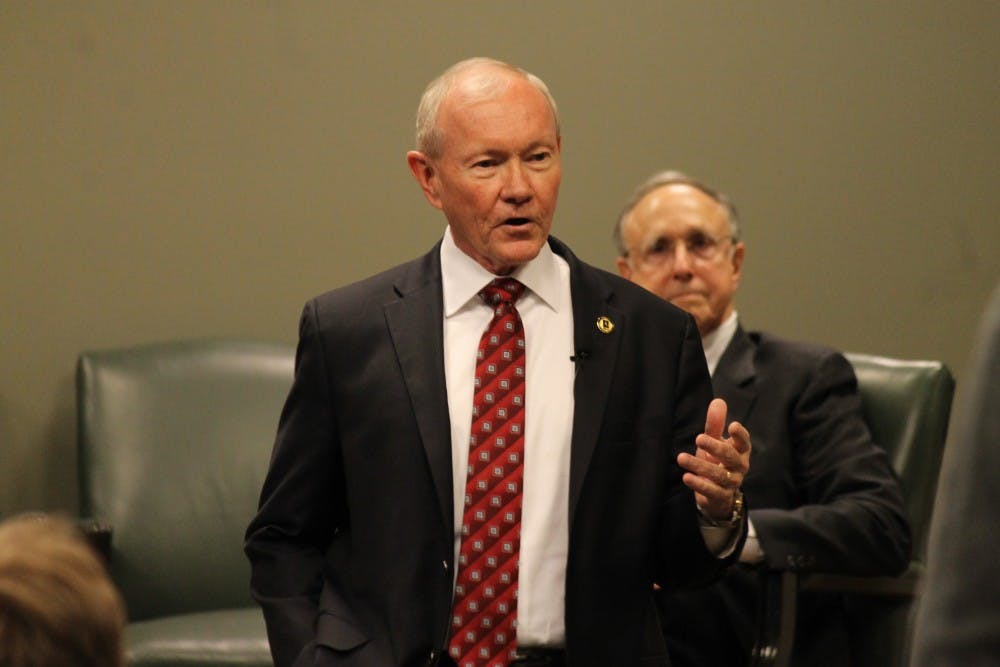Krasno Global Affairs and Business Council at UNC operates a series of discussions on campus called the Krasno Events Series, aimed to enhance the community’s understanding and awareness of past and present global affairs.
On Feb. 21, the Krasno Events Series hosted Lawrence Wilkerson and Professor Richard Kohn for a discussion titled “Has America Lost its Way? Leadership in Times of Crisis & the U.S. and the Rule of Law.”
Wilkerson is the former chief of staff to U.S. State of Secretary Colin Powell and the associate director of the Policy Planning staff in the U.S. State Department. Wilkerson retired from active service from the U.S. Army in 1997 as a colonel and is a distinguished adjunct professor of government and public policy at the College of William and Mary.
Kohn is a professor of peace, war and defense and history at UNC. His professional focus has been on American military history with a general emphasis on national security, military, policy and strategy.
Wilkerson began his lecture by discussing a meeting he had on Capitol Hill last week with the professional staff from the Senate Committee on Finance in which he, among others, was asked about the defense budget of the United States. He said based on estimates, using conservative inflation figures and annual rises in the defense budget, by 2030, there will be no money for federal discretionary spending. The interest payment of debt and the defense budget will consume the entire budget.
“That is partly because, as my Republican colleagues will tell you especially, the entitlements portion is so high, but that tells you something about these stupid wars,” Wilkerson said.
Wilkerson said the army was 6,000 short last year but is paying $40,000 in bribes to get the fourth and fifth quantile of America's population to serve.
"This is the most unfair years of war period we have had in our history,” he said.
Wilkerson explained how he has been going to the House of Representatives and the Senate for the last six months trying to get a law passed based on the War Powers Act of the Constitution to stop the United States from participating in the “heinous” war in Yemen. He said that he does not agree with the action of providing Saudi Arabia with more bombs, even though they losing.




